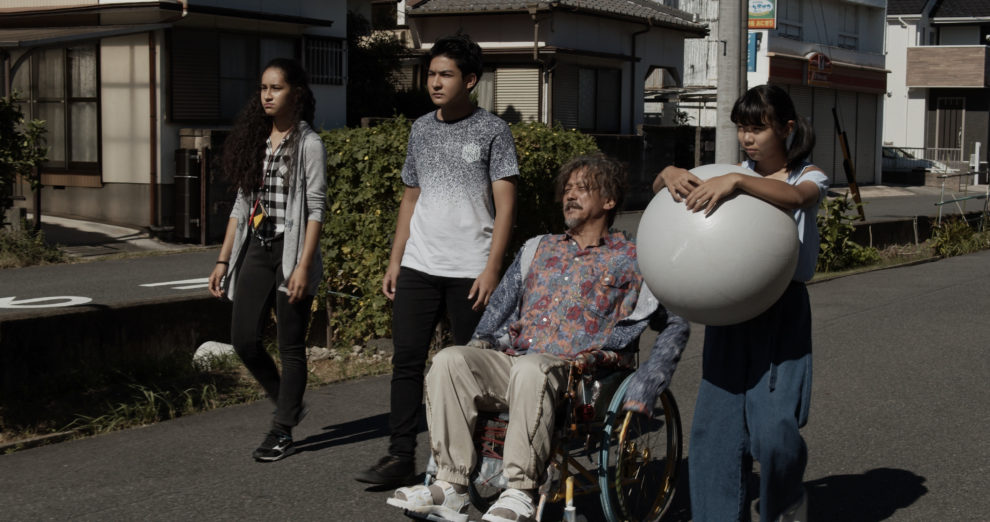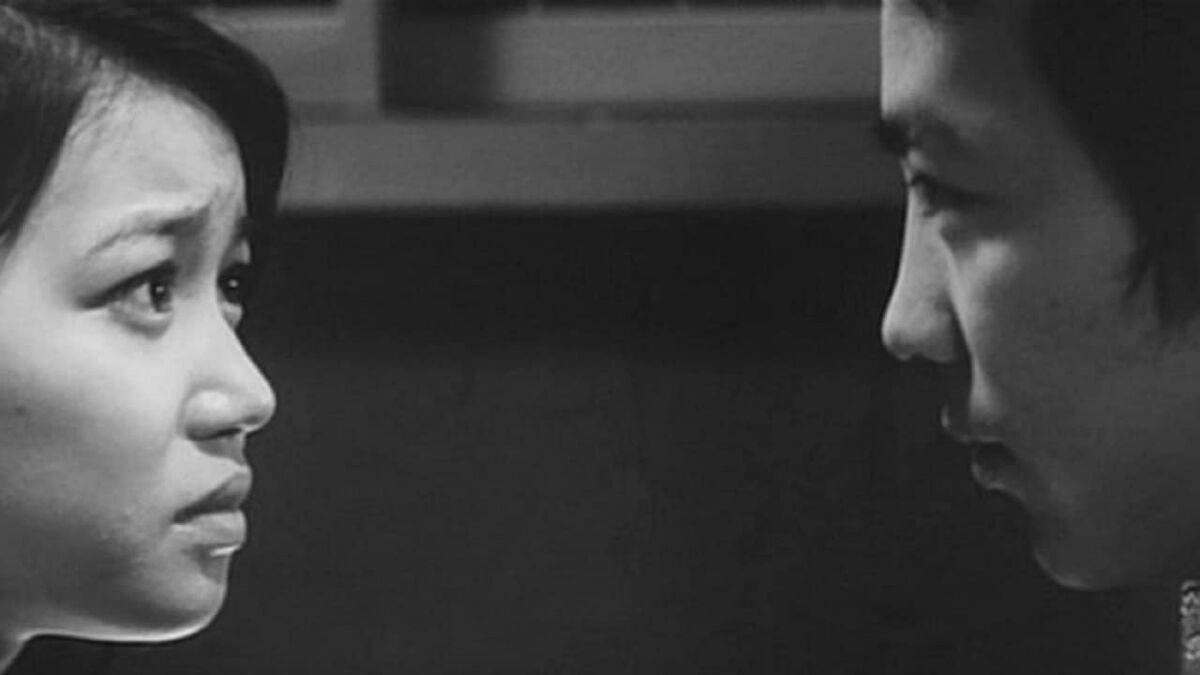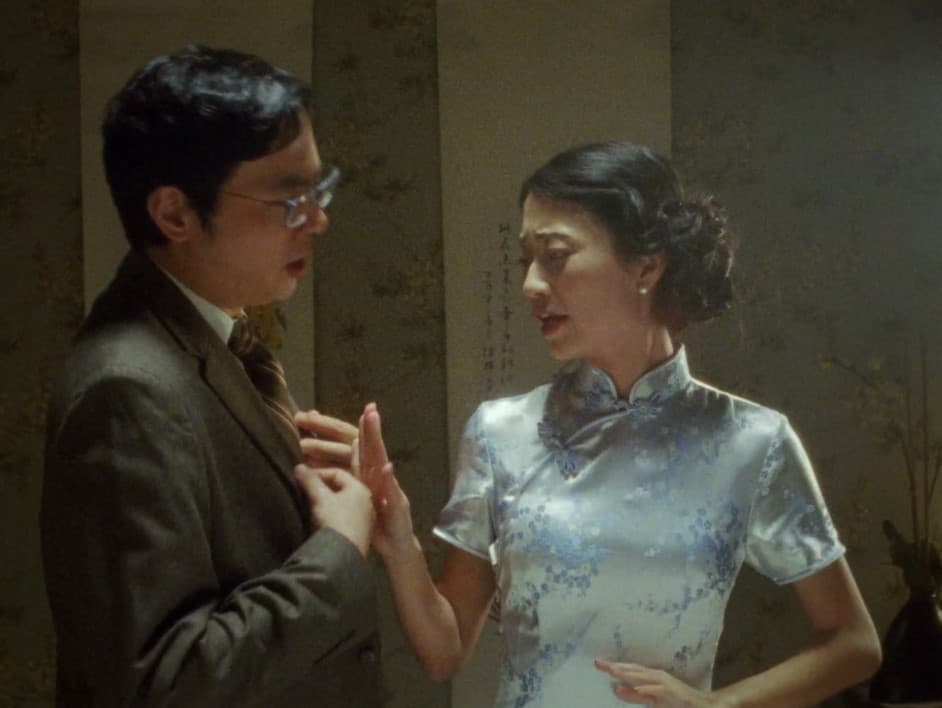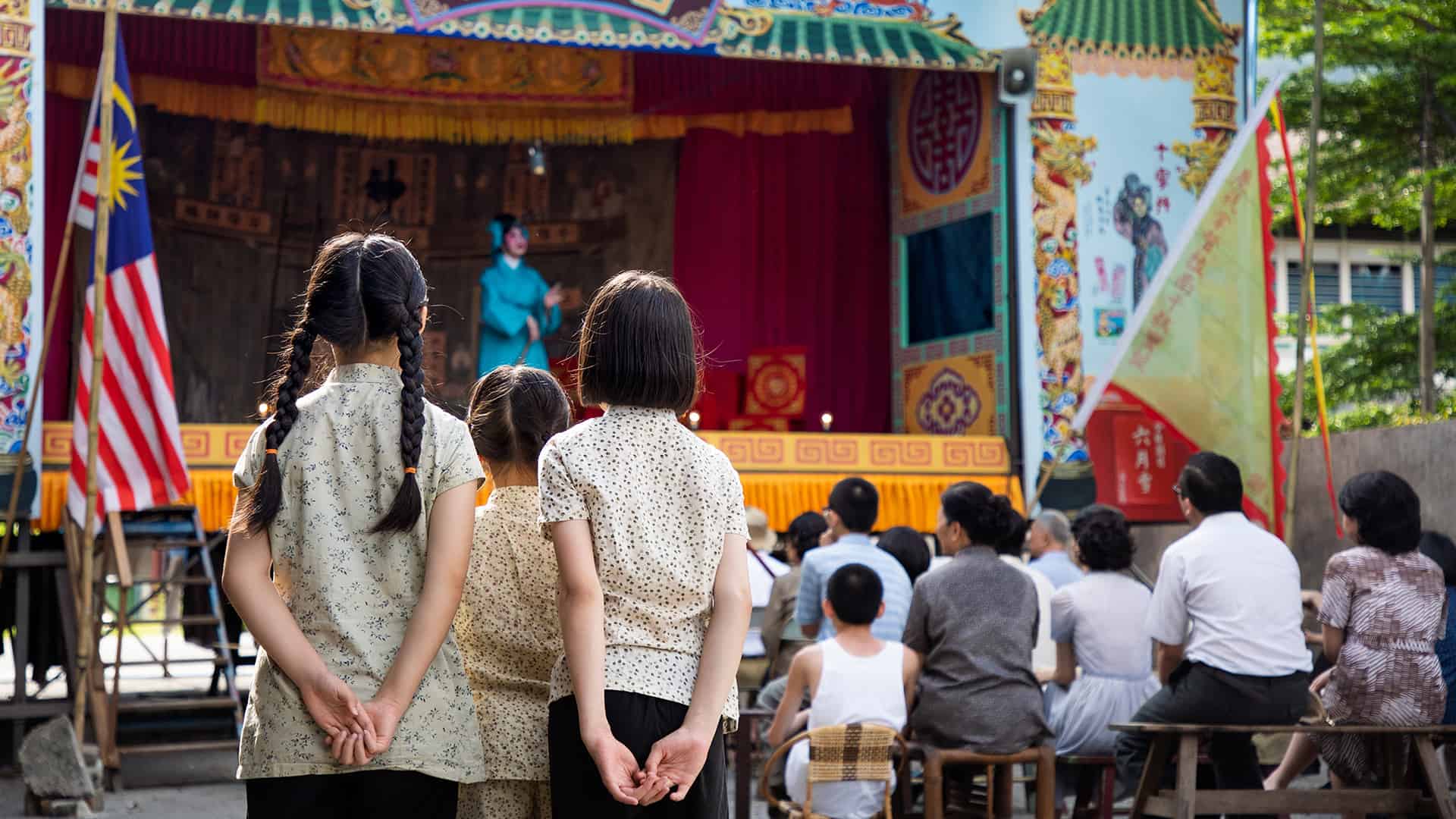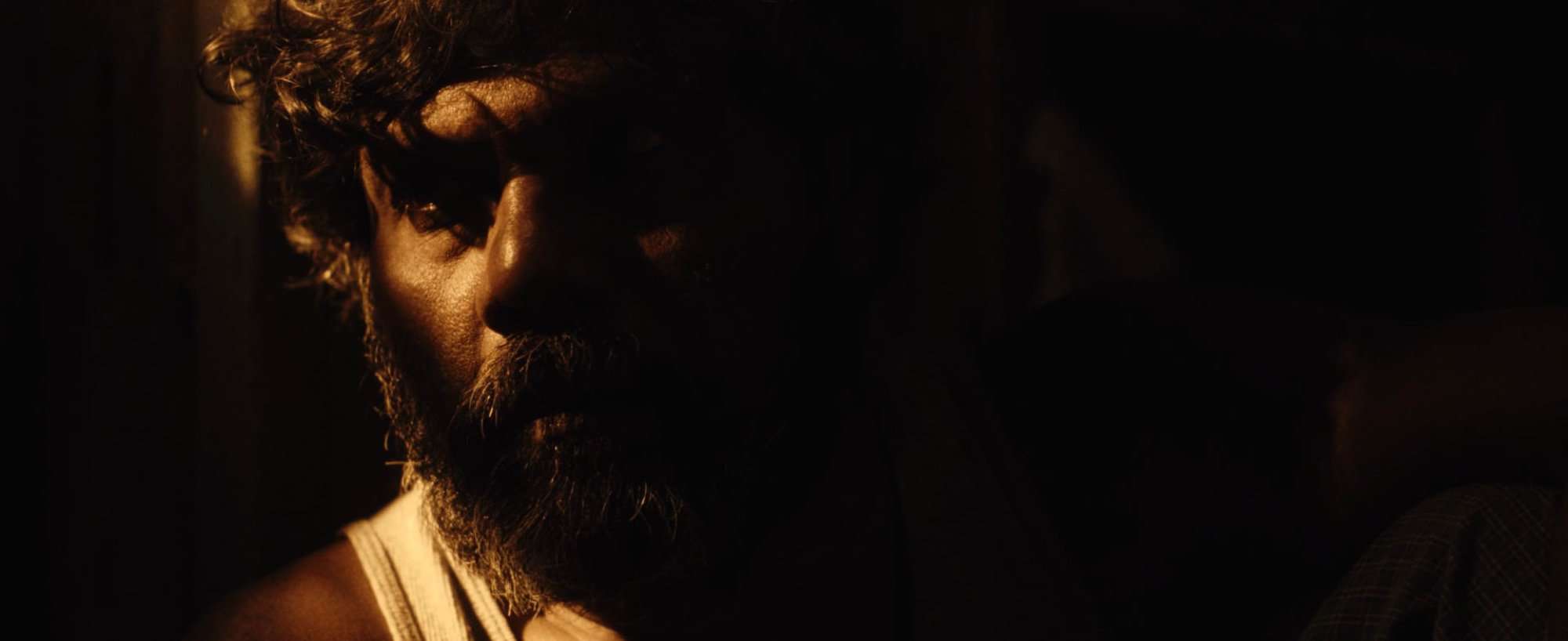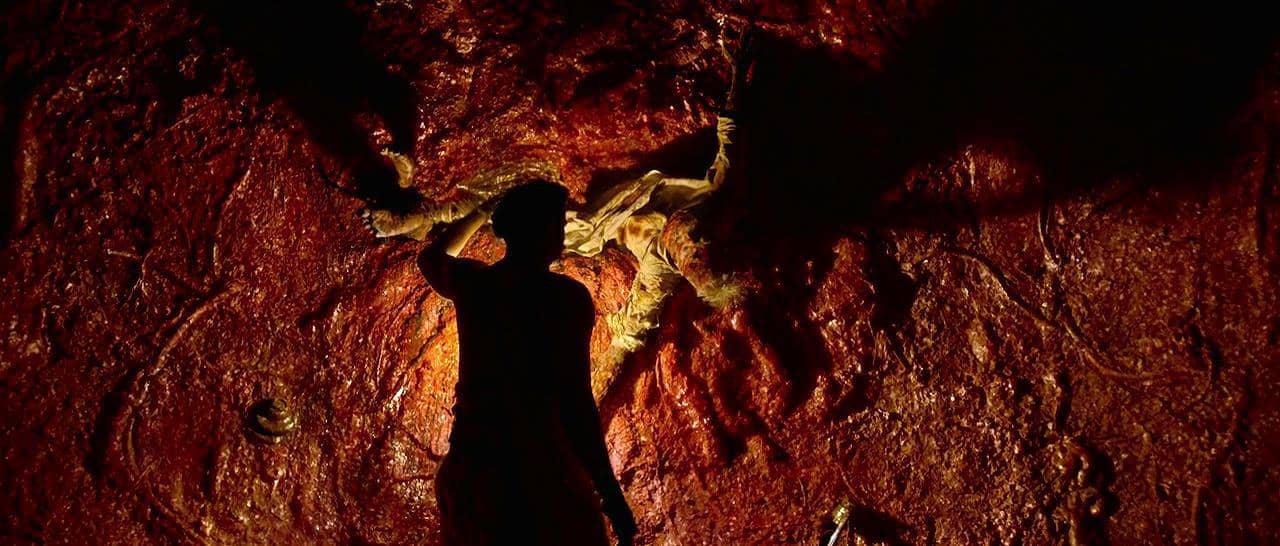Films funded by and focused on particular Japanese cities have become a kind of a trend recently in local cinema, with titles like “Bento Harassment” and “Island of Cats” being the first that come to mind. Shunnosuke Iwata does the same with “Switchback” by placing his story in Obu, on the occasion of the 50th anniversary of the city's founding, as part of a project designed to support local children who take up the central roles of the film.
Switchback is screening at Osaka Asian Film Festival

The story focuses on four 14-year-olds, who find themselves connected through a workshop run by Rei Kishitani, where they all attend. Rei's goal is to make them get to know the city better, and through a series of activities focusing on that, to move forward with their lives. To do so, she asks them to work in two groups, with their purpose being to record a rubber ball moving through the streets of the city. While dealing with their assignment, Arham, a junior high school kid from the Brazilian community, meets a weird man in a wheelchair, Mitsuishi, a drone handler who also explains about the airfield that used to run in Obu and his memories from the war. Alham is inspired by his stories and asks to be trained as a drone handler himself. Chiemi, also from the Brazilian community, has a talent for arts but is still in search for herself, in a path that eventually leads her to modeling. Suzuka likes to play basketball, and having recently moved into town, is in search of friends. Eiichiro, whose timid personality does not allow to work with the other despite Rei's pleas, eventually reveals a secret to Arham that brings both friction among them, and threatens the delicate psychology of the latter.
The word ‘switchback' refers to a road, path, or railway with alternate sharp ascents and descents. Obu City features a number of them, which is also the reason Rei asks the participants to record the ball moving through these particular locations, but also functions as a metaphor regarding the lives of the four children protagonists. The approach is rather smart, with the same applying to the selection of the protagonists, whose background (two from immigrant families, one who just moved in the city, and one whose family has been living there forever) allows Shunnosuke Iwata to highlight the different types of people living there, and also to “play” with their differences, through their interactions.
The center stage, however, is reserved for Arham, played by a rather convincing Arham Butt, and his relationship with Mitsuishi initially, and Eichiiro eventually. The presence of the latter, in another good performance, this time by Ryoma Amioka, functions as the turning point in the narrative, as his words threaten to destroy the already thin balance in Arham's life, essentially shattering his dreams, but also reveal that something else is going on in the background, and the roles of the grown-ups may not be exactly what they seem. Furthermore, his presence also kickstarts the shattering of, essentially, all the relationships among the protagonists, highlighting their differences, in a way that adds much drama to the narrative, along with a slight element of sanctimony, but in the end also shows that they can find their way, even if individually. This sense of mystery regarding the truth actually carries the movie for a large part of its duration, with the final revelation being shocking, at least to a point.
The antithetical combination of these aspects with the tour guide element in the film, work quite well here, particularly due to the excellent cinematography of Tomoki Yamakawa, who manages to highlight both, in utter artfulness, while a number of night shots are particularly impressive to watch. On the other hand, the music emerges as somewhat manipulative, and becomes tiring after a fashion.
Truth be told, in the end, “Switchback” emerges as a mixed bag of a film, particularly since the mystery does not serve a clear purpose, the grown-ups seem unfulfilled as characters, and the presentation of Obu is not exactly one that will make someone wishing to visit the place. On the other hand, and quite mysteriously, the collection of different elements here works quite well, resulting in a movie that holds the viewer from beginning to end, even though the reasons why are not exactly clear. Definitely deserves a watch though.


